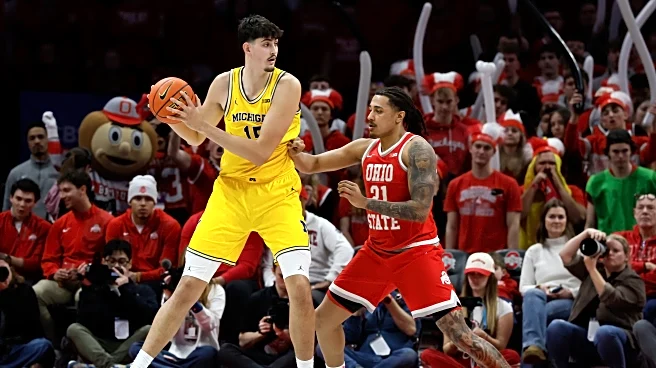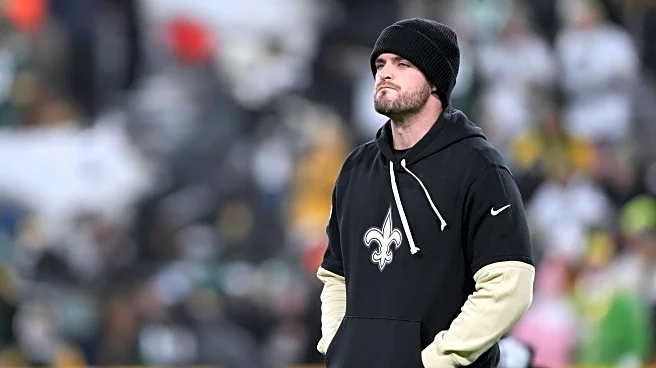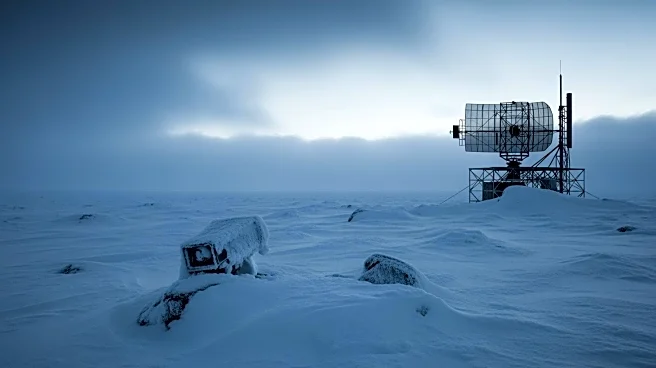What's Happening?
President Trump recently concluded a summit with Russian President Vladimir Putin in Alaska, which was marked by significant diplomatic pageantry but yielded no concrete agreements, particularly regarding a ceasefire in Ukraine. Despite the absence of Ukrainian President Volodymyr Zelenskyy, the meeting was historic, taking place on U.S. soil. The summit featured a red carpet welcome for Putin, a fighter jet flyover, and a ride in the presidential limousine. However, the discussions did not result in a ceasefire or any substantial concessions from Russia, aside from a vague commitment to continue talks. President Trump, who had expressed a desire for a ceasefire, left the summit without achieving this goal. Following the meeting, Trump engaged in discussions with European leaders and Zelenskyy, indicating a shift towards seeking a direct peace agreement rather than a ceasefire.
Why It's Important?
The summit's outcome is significant as it highlights the ongoing challenges in resolving the conflict between Russia and Ukraine. The lack of a ceasefire agreement underscores the complexities of international diplomacy and the difficulties in negotiating with Russia. The meeting's results could impact U.S. foreign policy and its relations with European allies, who are closely monitoring the situation. The potential for a trilateral meeting involving Trump, Putin, and Zelenskyy could offer a new avenue for peace, but it also raises questions about the effectiveness of current U.S. strategies. The summit's outcome may influence future legislative actions, such as the imposition of economic sanctions on Russia, which are being considered by U.S. lawmakers.
What's Next?
President Trump has indicated that he plans to meet with President Zelenskyy at the White House, which could set the stage for further diplomatic efforts. There is also the possibility of a future meeting involving both Putin and Zelenskyy, which Trump has suggested could lead to a peace agreement. Meanwhile, U.S. lawmakers are debating the implementation of economic sanctions against Russia, with some senators advocating for immediate action if diplomatic efforts do not yield results. The international community will be watching closely to see if these diplomatic engagements can lead to a resolution of the conflict.
Beyond the Headlines
The summit's focus on stagecraft rather than substantive agreements highlights the challenges of international diplomacy in high-stakes conflicts. The event also raises questions about the role of media and public perception in shaping diplomatic outcomes. The editing of summit footage by the White House to emphasize positive interactions between Trump and Putin suggests an effort to manage public perception and maintain diplomatic momentum. This approach may have implications for how future diplomatic events are conducted and reported.










